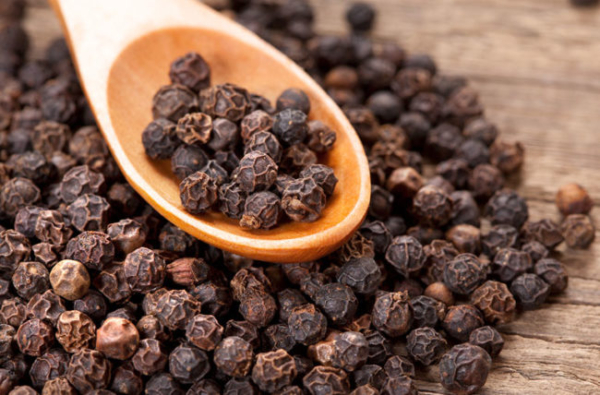Supply pressure increased at the beginning of the new season and abundant reserves are putting pressure on the domestic pepper market. In October 2022, the price of black pepper in the domestic market fell to the lowest level since the beginning of this year.
According to the Import-Export Department (Ministry of Industry and Trade), in the third quarter of 2022, the global pepper market faced difficulties due to low demand and falling prices. The downtrend lasted until October 2022 due to high inflation, slow consumption demand, and abundant supply.

In 9 months of 2022, Vietnam’s pepper exports reached 174.53 thousand tons, worth USD 770.44 million
Specifically, in Brazil, on October 28, the export price of black pepper decreased by US$175/ton compared to September 30, to US$2,475/ton.
At the port of Ho Chi Minh City, on October 28, the export price of 500g/l and 550g/l black pepper for export decreased by 200 USD/ton and 300 USD/ton respectively compared to September 30, down to 2,950 USD/ton and 3,050 USD/ton. The price of white pepper for export dropped sharply by 600 USD/ton compared to September 30, down to 4,550 USD/ton.
In the domestic market, supply pressure increases at the beginning of the new season and abundant reserves are putting pressure on the domestic pepper market. The USD/VND exchange rate increased sharply, prompting growers to sell out.
In the third quarter of 2022, the domestic price of black pepper fluctuated in a downward trend. In October 2022, the price of black pepper in the domestic market fell to the lowest level since the beginning of this year. On October 28, the price of black pepper decreased from 6,500 – 7,000 VND/kg compared to September 29, to 56,500 – 59,000 VND/kg.
From an export perspective, the Import-Export Department further informed that in the first nine months of 2022, Vietnam’s pepper exports reached 174.53 thousand tons, worth US$770.44 million, down 18% in volume but up 7.7% in volume. 1% in value over the same period in 2021.
It is forecasted that Vietnam’s pepper exports will face difficulties in the coming time. The armed conflict between Russia and Ukraine has not shown any signs of abating, high inflation leads to a tightening of people’s spending in most countries and territories. Therefore, the demand for non-essential goods decreases.
Pepper prices will fluctuate in a downtrend when the world economic recession is forecasted to last into 2023.
